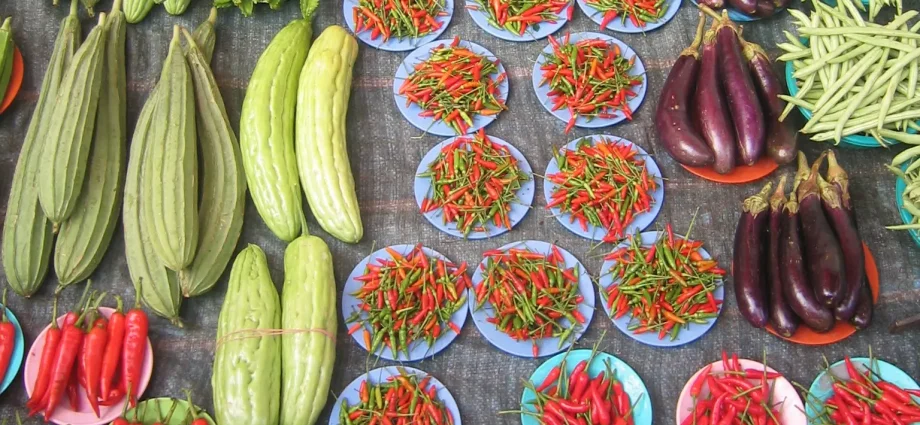Contents
Organic food can be seen more and more often on store shelves. This is related to the growing awareness of the society regarding the impact of nutritional decisions on the environment. Adults eagerly reach for such products both for themselves and for the youngest members of the family. However, is each “eco” or “bio” label a synonym of safety and nutritional value for the smallest consumers? Mariola Darzycka, BoboVita expert, talks about organic food in the diet of infants and young children.
The needs of the young organism come first
From the moment a child is born and during the first years of life, the young organism continues to develop very intensively. Its organs, metabolism, digestive and respiratory systems as well as immunity develop. His sensitivity to factors of external origin is very high during this period.
Due to special requirements, an infant or a small child needs exceptional care, including a properly composed diet – different than in the case of an adult. The presence of products in the menu that meet stringent quality standards and are balanced in terms of nutritional value is of key importance. Regardless of whether the ingredients they contain come from conventional (traditional) or organic farming, it is worth reaching for products intended specifically for infants and young children. They meet the stringent quality standards set out by national and European Union law, and their composition is tailored to the nutritional needs of the young organism.
The characteristic feature that helps to distinguish such food from the general purpose is the age indication on the packaging (e.g. after 7 or 8 months of age). This designation helps parents to make a choice that takes into account the stage of their child’s development.
Organic food that meets the requirements of the youngest
If a parent wants to compose a child’s menu based on organic products, he should first of all pay attention to their labels. Organic food that meets the needs of infants and young children, in addition to indicating the age, the packaging has the EU organic farming logo, the number of the certification body and the country of origin of the raw materials.
The logo of organic food is easily recognizable by the leaf made of white stars on a green background (the so-called Euro leaf) visible on the label. This symbol shows that the ingredients contained in the product come from certified crops and certified organic farming. All stages of production, processing and distribution of such food are subject to detailed control of the certification body.
Characteristics of “bio” agriculture
Organic farming differs from conventional farming mainly in terms of the number of requirements imposed by law. Raw materials such as vegetables, fruit, grain and meat used in the production of “bio” food must meet a number of strict standards for cultivation, animal welfare and production. In the production of such food, practices that are most beneficial for the environment, biodiversity, climate and natural resources are used1.
Ecological crops include specific agricultural treatments that have a beneficial effect on increasing the organic matter of the soil, improving its properties and preventing its destruction. In such crops it is allowed to use only plant-based agents and fertilizers. If meat is used as an ingredient, the product must come from farms where the animals are fed primarily with organic feed. In keeping such animals, in accordance with the provisions of the law, no prophylactic synthetic veterinary medicines (including antibiotics) are used. The use of hormones is forbidden and the growth of animals may not be artificially stimulated.
The market of products for the youngest has more and more to offer. The awareness of caregivers regarding the impact of the selected food on the proper development of a child and on the environment is a very good sign for future generations. Thanks to the growing interest in ecological products, producers of food for children have more and more to offer. For parents who are looking for eco-certified products for their children, there is a wide range of bio food available on the market – meals, fruit purees, fruit mousses in tubes and porridges. Among them you can find, among others, wholesome meals with 100% vegetables. from certified organic crops, as well as with 100% meat. from certified ecological farms, run with the utmost care for the environment and animal welfare. Such products are created with the benefit of the planet – biodiversity, soil condition and water sources in mind. In addition to being safe, they are also preservative-free *, dye-free *, and flavor-free *. By choosing them, caregivers can be sure that the toddler – from the very beginning of his adventure with discovering new tastes – gets what is good – for the sake of the natural environment and its future.
* In accordance with the legal regulations for this product category.
Important information: It is recommended to continue breastfeeding while introducing complementary foods. Breastfeeding should continue for as long as desired by mother and baby. Breastfeeding is best for your baby.
The content of the medTvoiLokony website is intended to improve, not replace, the contact between the Website User and their doctor. The website is intended for informational and educational purposes only. Before following the specialist knowledge, in particular medical advice, contained on our Website, you must consult a doctor. The Administrator does not bear any consequences resulting from the use of information contained on the Website. Do you need a medical consultation or an e-prescription? Go to halodoctor.pl, where you will get online help – quickly, safely and without leaving your home.










